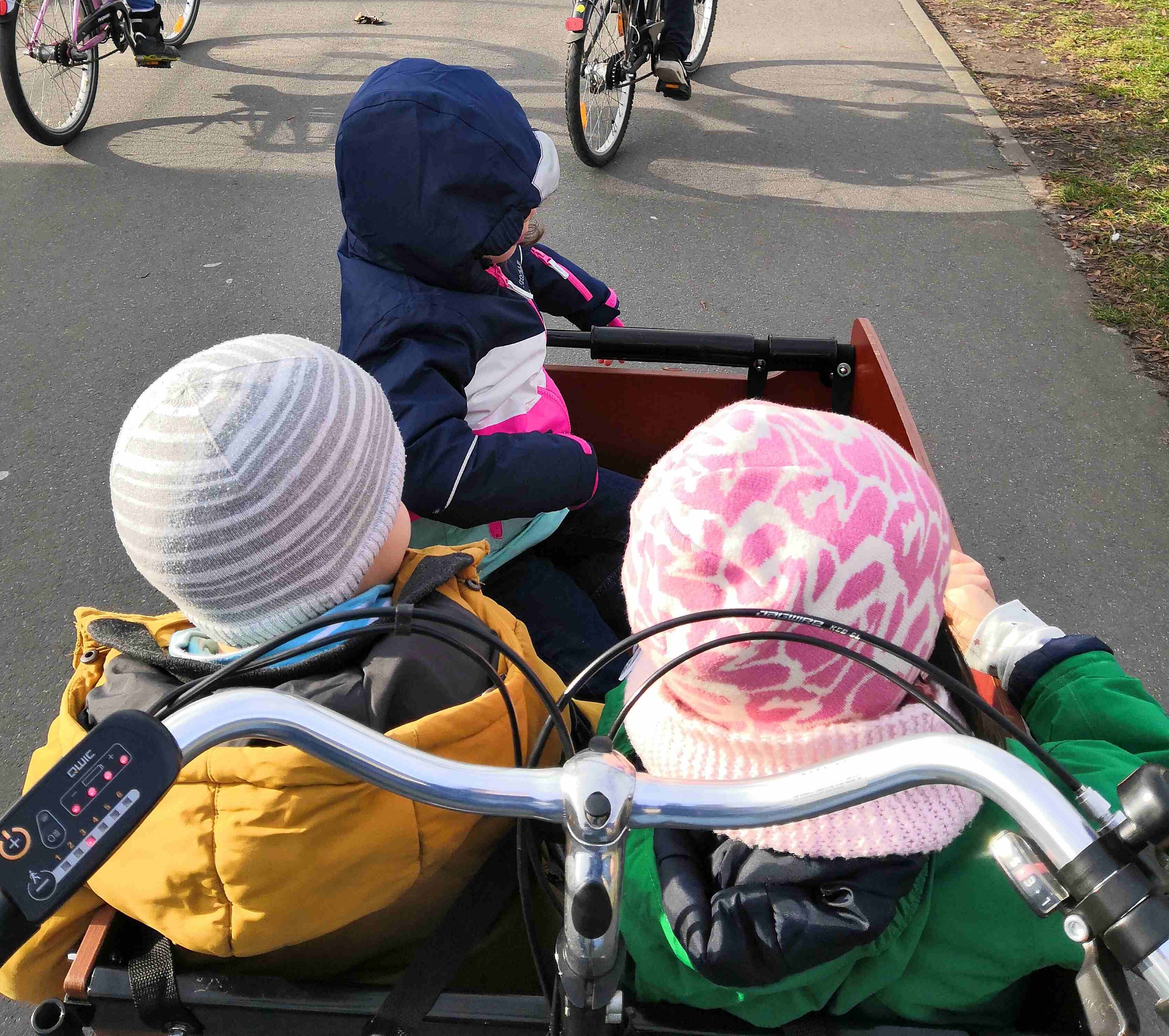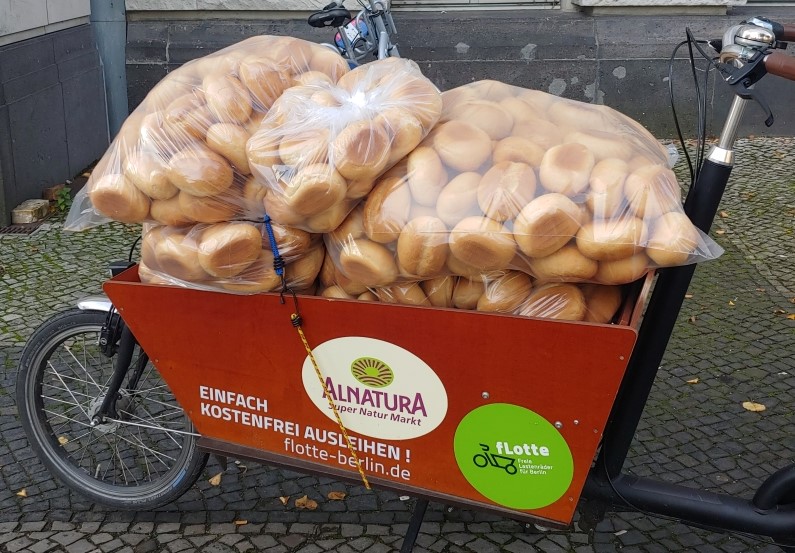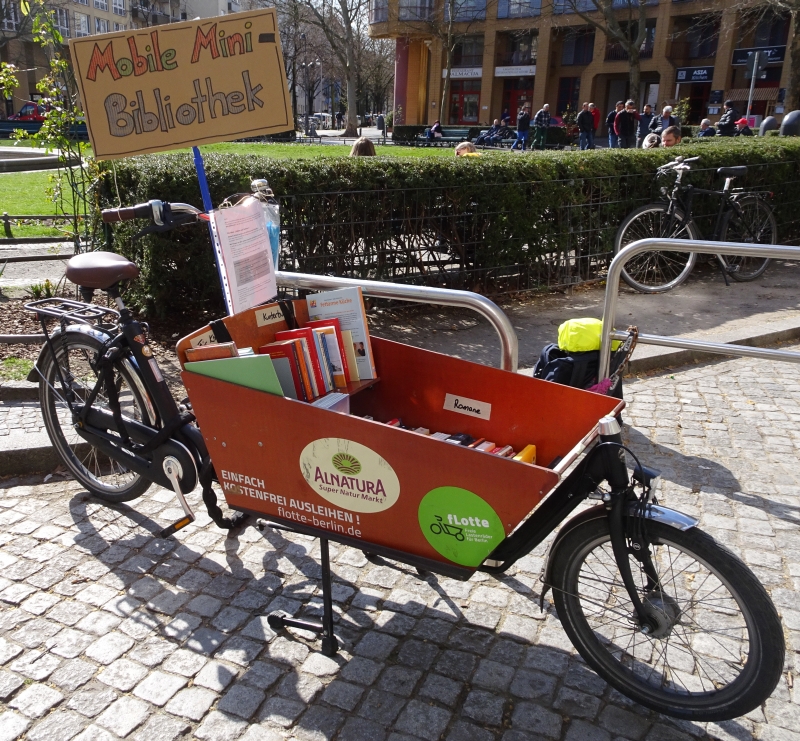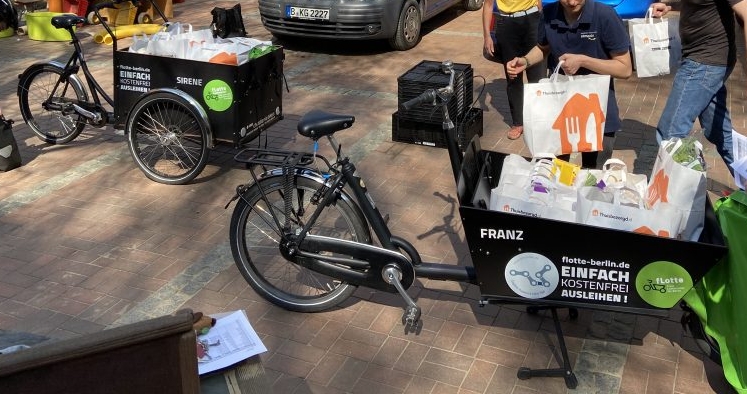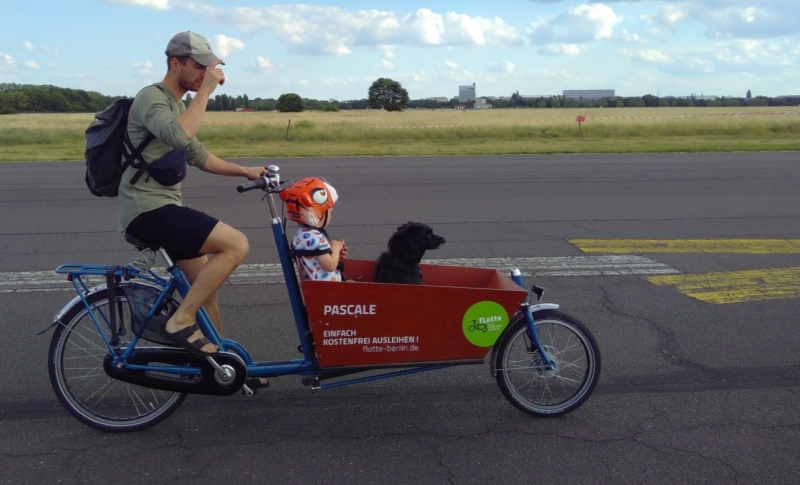City
Berlin
Main actors
Local Government, City Government, Private Sector, Community / Citizen Group, NGO / Philanthropy
Project area
Inner City
Duration
Ongoing since 2018
Free cargo bikes for Berlin- #don’t own, share!
“fLotte Berlin” is a free cargo bike project initiated and implemented by the German bike association (ADFC) and enhanced by Berlin local authorities and the city of Berlin jointly with the project “fLotte kommunal”. The project aims to transform urban mobility by increasing the private use of cargo bikes in Berlin.
Citizens can borrow cargo bikes via the project, free of charge for up to 3 days, for both personal and commercial uses, by registering on an online platform. The platform includes an interactive map that provides an individual bike profile for each cargo bike, and the map also includes information about a bike’s location and details of when it will become available. The bikes are available at non-profit organizations and local community locations such as neighbourhood centres, children’s centres, youth and women’s centres, museums, and public libraries. Cargo bikes can also be found at private locations such as bike shops, organic supermarkets and bookshops. People use the bikes to transport children, to carry heavy items, for weekend trips outside the city, or they just try them out for fun.
The initiative has grown continuously and has been very well received. The cargo bike project shows that alternatives exist to owning a car in urban areas.
External links / documents
On Map
The Map will be displayed after accepting cookie policy
